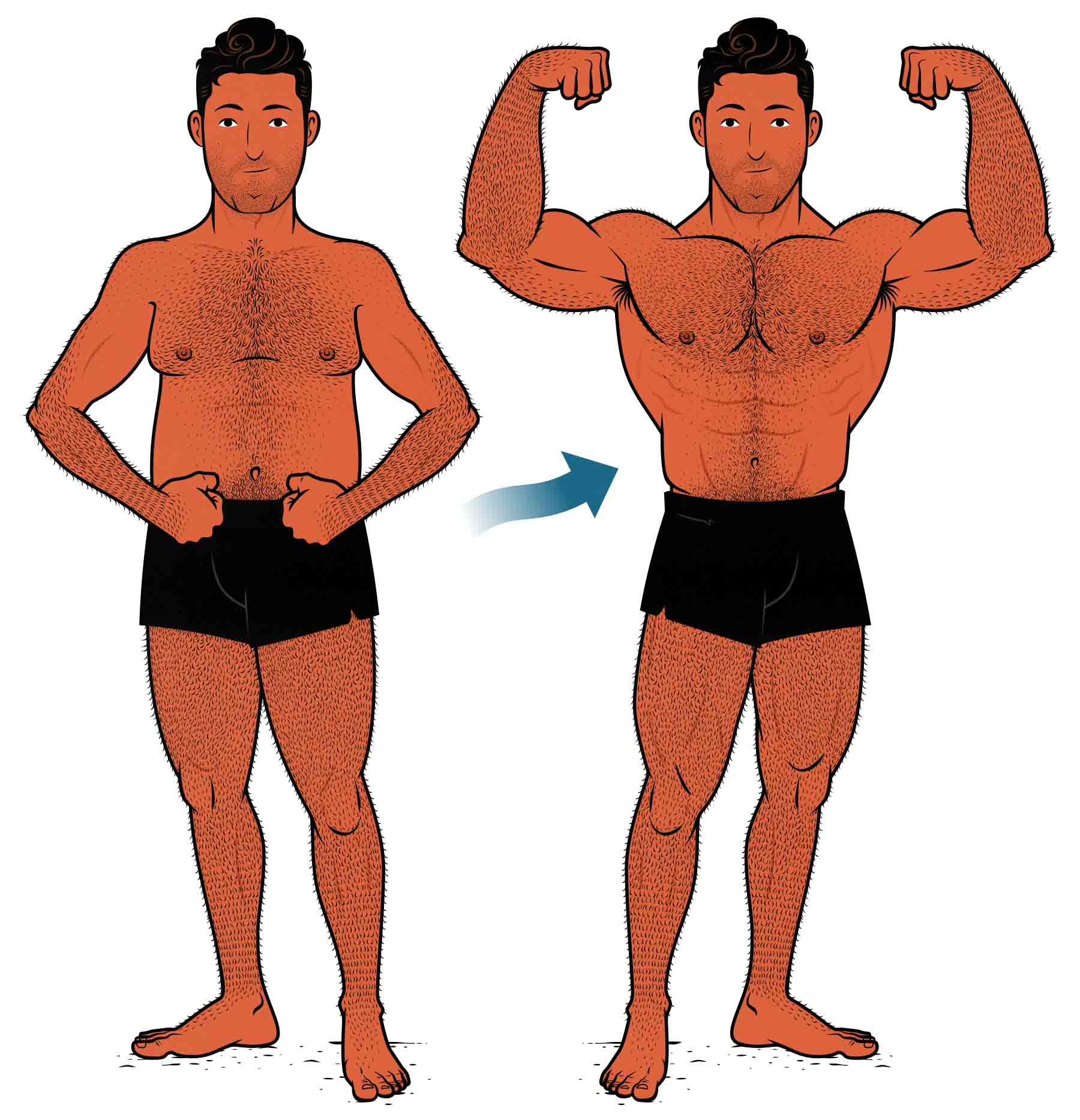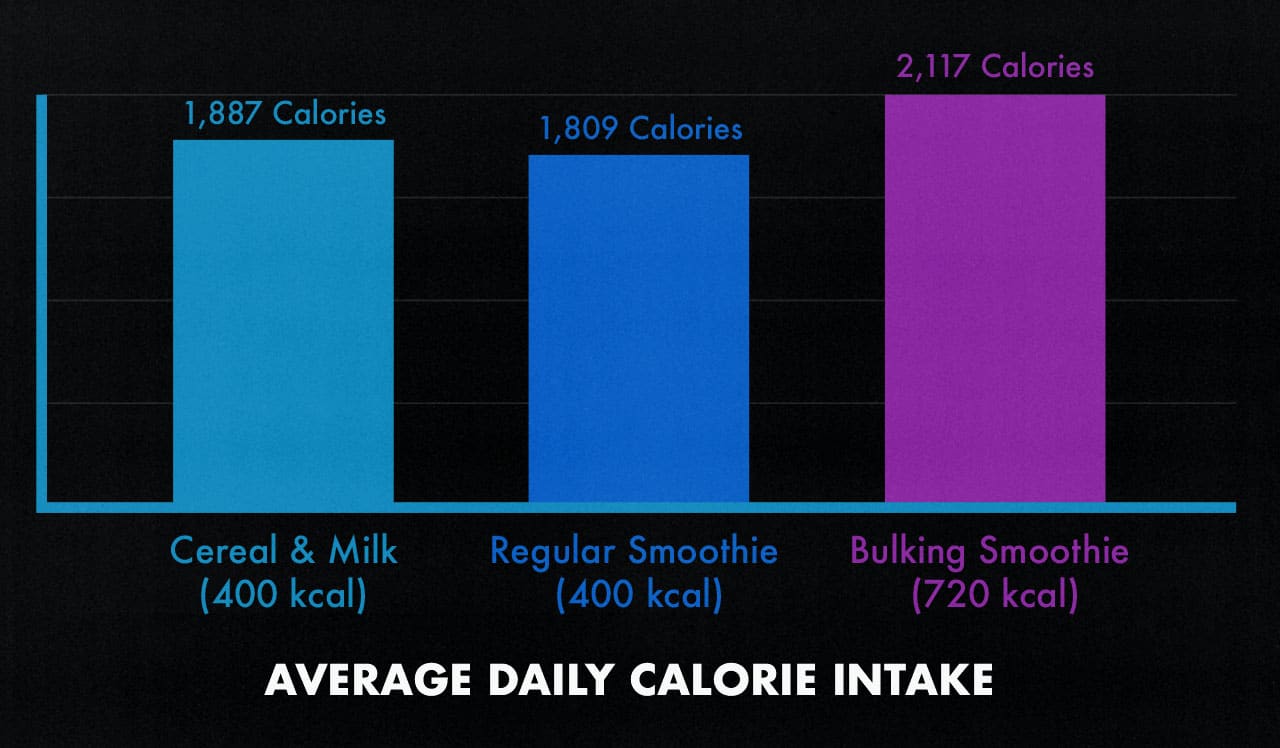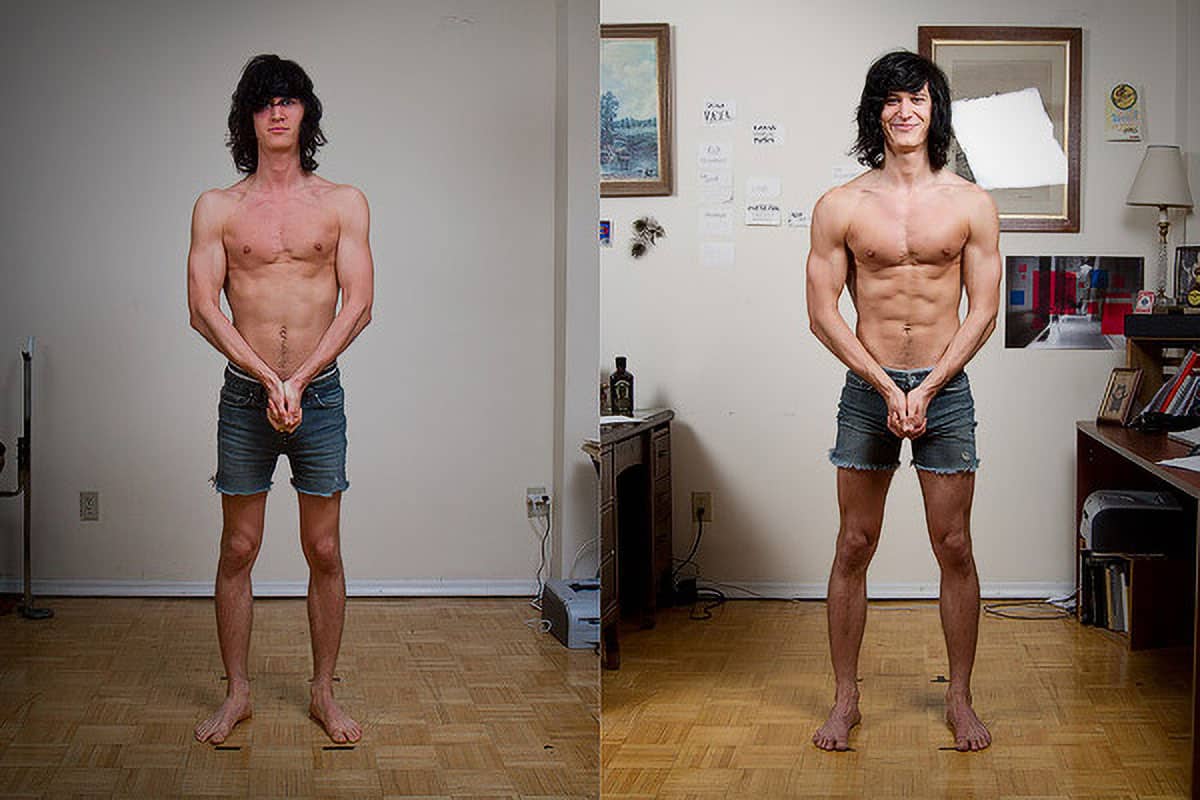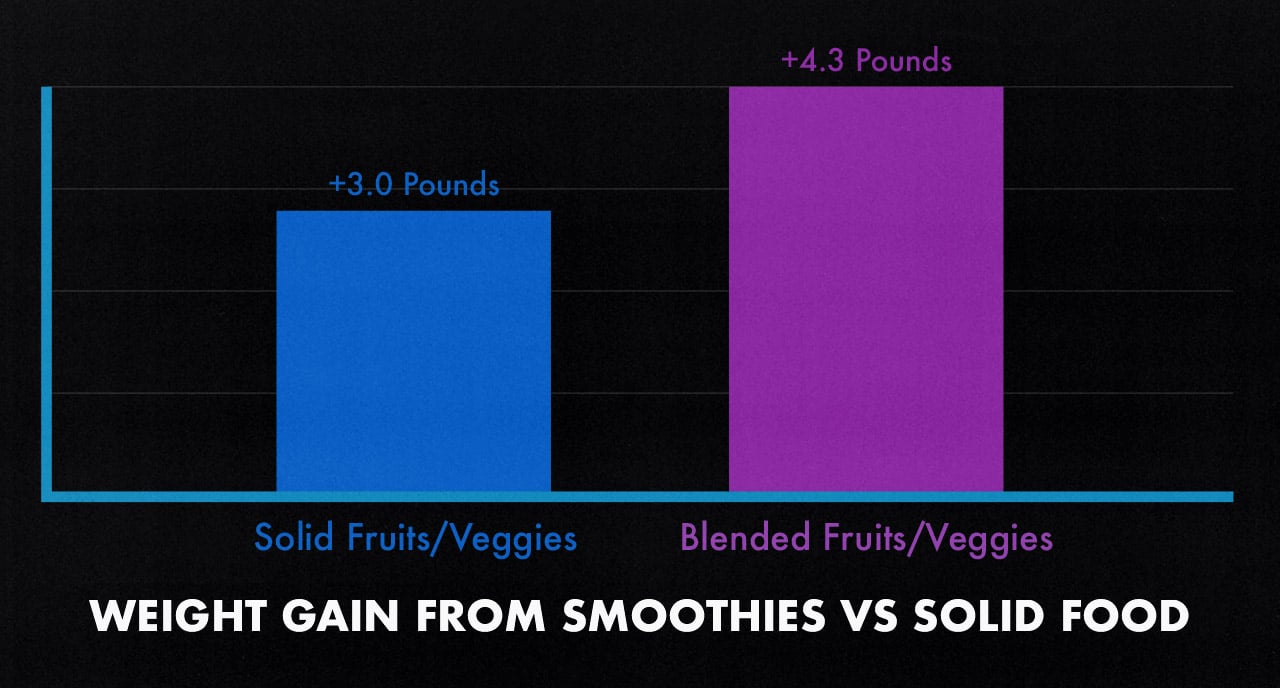
Do Smoothies Cause Weight Gain?
Most research shows that calories are less filling when you drink them, making it easier to gain weight (systematic review). Maybe that’s because you don’t need to chew, you don’t spend as long eating, and the food doesn’t stay in your stomach as long (study, study, study).
Smoothies aren’t like soda and juice, though. They’re made by blending nutritious whole foods. For example, when you blend fruits with seeds in them (like berries), you release more of the fibre, slowing digestion and blunting the blood sugar response (study). Perhaps that keeps you feeling full for longer, causing you to eat fewer calories.
Also, before going into the research, I should note that there’s nothing fattening or unhealthy about smoothies. Smoothies can be incredibly nutritious. Blending up food doesn’t make it more likely to be stored as fat, but it might make us more likely to eat more food, tipping us into a calorie surplus.

Smoothies vs Common Foods
This first study compared milk, fruit, fruit juice, and a fruit smoothie against water (study). They all had exactly 136 calories, except for the water. That’s a very small smoothie, but we’ll get to the bigger ones soon.
- Water: No calories.
- Milk: A mix of whole milk and skim milk.
- Juice: Black-current juice with added sugar.
- Fruit Salad: Apple, banana, orange, mango, passion fruit, and peach.
- Fruit Smoothie: Same as the fruit salad but blended.
The fruit salad was the most filling. The smoothie was slightly more filling than the milk. The juice wasn’t any more filling than water.
The researchers also looked at how the timing of the smoothie affected calorie intake. When the participants had their smoothie with breakfast, they ate less breakfast than usual, balancing out their calories. When they had their smoothie two hours before breakfast, they ate a little bit more breakfast than usual, giving them 180 extra calories overall. That’s enough to gain about half a pound per week.
High-Calorie Smoothies vs Regular Smoothies
The next study compared high-calorie bulking smoothies against typical health-food smoothies (study). The researchers also compared the smoothies to a typical breakfast of cereal with milk.
- Weet-Bix Bran Cereal (400 kcal): Whole milk, along with blueberries and yogurt.
- Fruit Smoothie (400 kcal): Whole milk, banana, blueberries, yogurt, skim milk powder, and psyllium husk.
- High-Calorie Smoothie (720 kcal): Same as the fruit smoothie but with extra maltodextrin powder to raise the calories.

When people drank the high-calorie bulking smoothie, they ate 310 calories more, which is enough to gain 0.5–1 pounds per week. And they ate those extra calories without even realizing they were doing it. The researchers told them they were testing an experimental new type of blender that unlocked “the hidden nutrition in food.”
When people drank small health-food smoothies, they consumed 80 fewer calories than when eating cereal, but the difference wasn’t statistically significant. So, it seems smoothies make it easier to gain weight, but only if you buff them up with starchy carbs like maltodextrin. It could be that adding calories from nuts, seeds, oils, or whole grains would have the same effect. Maybe simply making larger smoothies would do it.
This still doesn’t tell us if smoothies cause accidental long-term weight gain, though. We need to look at longer studies for that.
A Quick Note on Maltodextrin
Maltodextrin is a starchy carb, like rice. There’s no sucrose in it, which makes it relatively safe to consume in large quantities. That’s why it’s so common in mass gainers. That’s presumably why the researchers used it to bulk up their smoothies.
During one of my earlier bulks (over a decade ago!), I mixed maltodextrin into my shakes and smoothies. It worked well. I gained muscle leanly, and all of my health markers improved:

The downside to maltodextrin is that it doesn’t contain any other nutrients. That’s why I eventually moved away from it. Now, I use quick oats, flax seeds, and honey to bulk up my smoothies instead. Maltodextrin is cheap and convenient, though, and it works quite well.
Do Smoothies Cause Weight Gain?
In an 8-week study by Houchins and colleagues, people gained 1.3 pounds more weight when they were given fruit/veggie smoothies versus solid fruits/veggies (study). This was the longest study, and it looked directly at whether smoothies cause weight gain, so it’s the one I’m putting the most stock in.

Interestingly, the smoothies had a larger effect on thin people. They didn’t gain much weight from solid food, but they did when drinking smoothies. (Overweight people gained weight either way, but they gained a little more when drinking smoothies.)
Summary & Tips
Smoothies are thick, high in protein, and rich in fibre, making them more filling than most other drinks, but they still aren’t as filling as regular food (study). That means smoothies make it easier to eat more calories, especially if you’re naturally thin, especially if they’re high in calories, and especially if you have them as snacks between meals. In longer studies, this usually causes weight gain (study).
Smoothies are also quick to make, fast to drink, and rich in vitamins, minerals, phytonutrients, and fibre. Blending foods doesn’t destroy nutrients. That makes smoothies one of the best foods for people trying to gain weight. I used them to gain 70 pounds:

We’ve used high-calorie smoothies to help clients bulk up, too. Those clients include everyday people all the way up to college, professional, and Olympic athletes. Most people who have gained a substantial amount of muscle swear by smoothies and shakes.
If you’re trying to lose weight, fruit salads and yogurt parfaits are more filling than smoothies. You’ll feel more satisfied after eating them, and you’ll probably find it easier to get into a calorie deficit. Even better, fruits like strawberries and watermelons have almost no calories in them, allowing you to indulge in fairly large fruit salads.


Muscle-Building Mini-Course via Email
Sign up for our 5-part muscle-building mini-course that covers everything you need to know about:
Here are some related articles